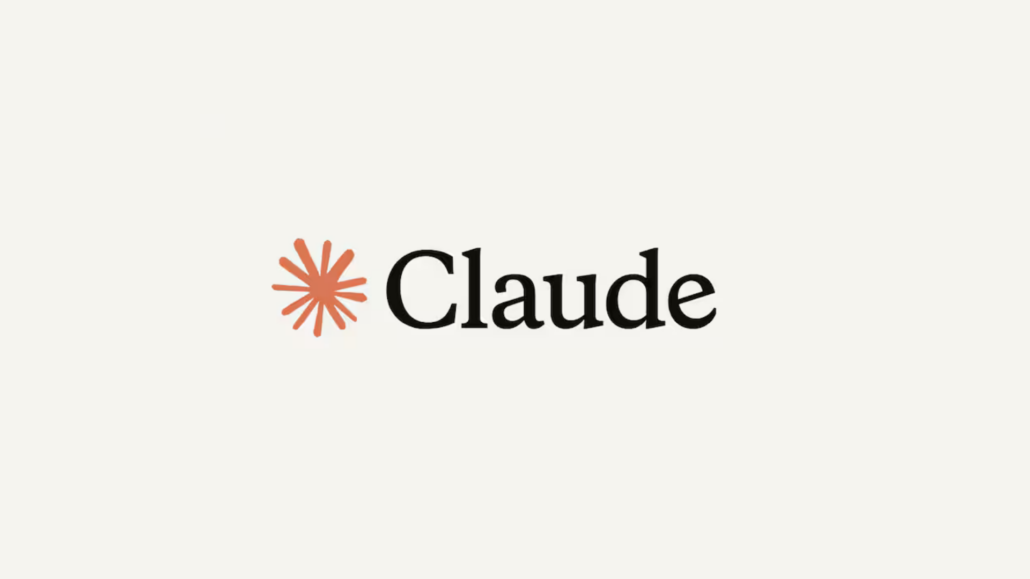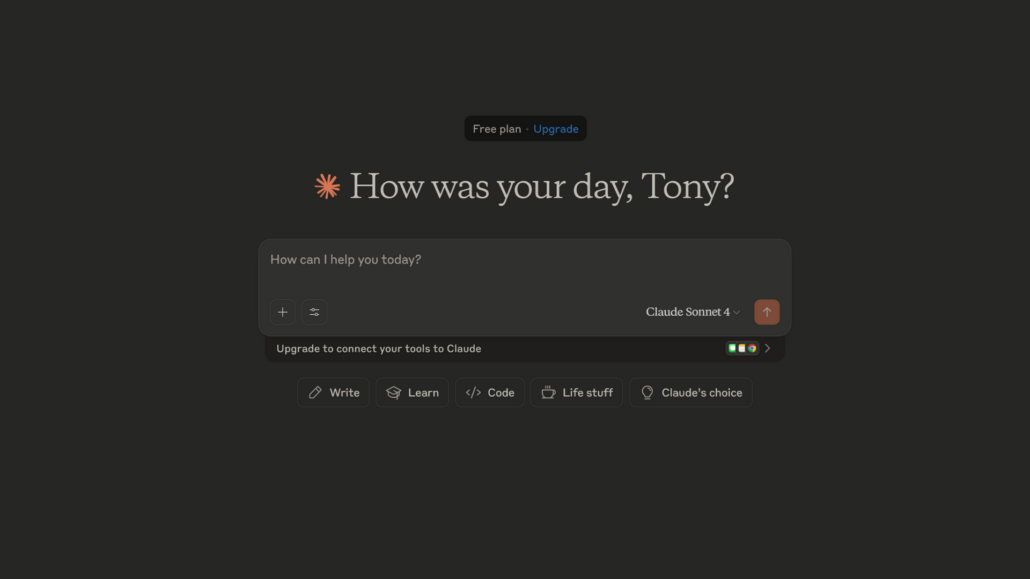Is Claude a ChatGPT Killer? Not Exactly, But it’s Still a Useful Tool

My Claude Sonnet 4 review process proved the chatbot is a dependable tool, much like that coworker who never misses a deadline and gets the job done without fuss. It’s solid and trustworthy, but it lacks the kind of creativity or personality that makes you want to interact with it for fun. I tested Claude extensively—factual questions, creative writing prompts, coding challenges, logic puzzles, and real-world SEO tasks. It performed well across the board, but compared to ChatGPT, it misses that special spark that makes AI feel more like a partner than just a tool.
Let’s get to my review, shall we?
Claude Sonnet 4 Review: Reliable, Smart, but Missing the Spark
Ease of Use & Interface

Claude’s interface is straightforward and easy to navigate. Starting a new chat is instant, and all the essential features are right where you expect them to be. Dark mode is available, and chats can be renamed or deleted with ease. However, organization is limited to starring conversations, which feels a bit basic compared to ChatGPT’s folders and project-based system. If you manage multiple projects, this might feel too limited.
The design is modern and functional but not particularly distinctive. It does its job quietly, which some users will appreciate, but others may find it plain. Navigation is smooth and responsive, with no lag or clunky elements.
Writing Quality & Tone Adaptability
Claude’s default writing style is polished and professional, but often too mechanical. It’s like reading a well-edited report—clear but lacking warmth or personality. When I asked it to rewrite content in a casual yet authoritative tone, Claude adapted well, loosening up and delivering something closer to my voice. This shows that with the right prompt, Claude can sound natural.
Claude does have a tendency to sound overly confident, even when simply presenting information. While confidence can be a plus, it sometimes borders on feeling a bit forced, as though it’s trying to prove itself instead of just providing answers.
Accuracy & Reasoning
Accuracy is one of Claude’s strongest qualities. It answered every factual question correctly, from Voyager 1’s entry into interstellar space to UFC title history, and always provided helpful context. It also passed the “fake event” test by correctly stating that there was no record of a made-up event instead of fabricating details.
For reasoning tasks, Claude excels. It breaks down logic puzzles clearly and provides step-by-step explanations that are easy to follow, making it a reliable assistant for analytical or structured problems.
Coding & Problem-Solving
Claude’s coding capabilities are impressive. When asked to write a Python function to reverse a string, it gave three different methods, each explained with docstrings and test cases. This level of thoroughness is useful for developers or anyone learning to code.
For logic problems, Claude not only provided the right answer but also explained the reasoning behind it. This combination of accuracy and clarity makes it a dependable problem-solving companion.
Real-World Usability
In practical tasks, Claude gets the job done. When I asked it to generate SEO-friendly headlines under 60 characters for this review, it produced functional titles like “Claude Sonnet 4 Review: Is This AI Worth the Hype?” They were accurate and keyword-rich but felt a bit safe and predictable. Unless prompted for creativity, Claude tends to stick with standard phrasing.
For content summaries, rewriting, or drafting, Claude is consistent and concise. It doesn’t add fluff, which is great for straightforward tasks, but for creative brainstorming, ChatGPT still feels like the better option.
Creativity
Claude surprised me with its creative side. It wrote a 100-word horror story that was genuinely eerie, using vivid imagery like steam forming a screaming grandmother’s face. It also came up with funny, absurd reasons why it’s better than ChatGPT, including the line, “ChatGPT sounds like a rejected Wi-Fi network name from 2003,” which actually made me laugh.
The self-deprecating poem it generated was another standout, showing a blend of humor and self-awareness that not all AI tools pull off naturally. When prompted, Claude can be witty and original.
Final Verdict
Strengths:
- Highly accurate and reliable on factual and technical queries.
- Strong coding and problem-solving skills with thorough explanations.
- Adapts tone well and can show creativity when prompted.
- Simple, intuitive interface with dark mode and easy chat management.
Weaknesses:
- Default tone feels polished but lacks personality.
- Limited chat organization compared to competitors.
- Creativity doesn’t surface unless specifically requested.
Claude Sonnet 4 is dependable, accurate, and refreshingly honest when it doesn’t know something. It’s excellent for fact-checking, coding, and logic puzzles, and while its interface isn’t flashy, it gets the job done. With the right prompt, Claude can also deliver humor and creativity, though it doesn’t default to that style.
If you want an AI that’s precise and reliable for structured work, Claude is a strong choice. But if you’re looking for personality, creative flair, or that extra “something” that makes an AI feel alive, ChatGPT still leads the pack.
Bottom line: Claude Sonnet 4 is a great backup or secondary AI assistant—consistent, capable, and trustworthy—but it won’t replace ChatGPT as my daily driver.



Leave a Reply
Want to join the discussion?Feel free to contribute!